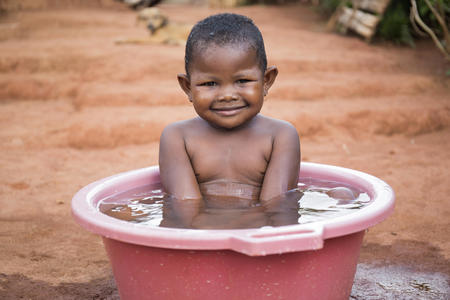The basics
This July decision makers will meet at the UN to review progress towards Sustainable Development Goal 6 – ‘Ensure availability and sustainable management of water and sanitation for all by 2030’.
The UN high-level political forum (HLPF) on sustainable development meets every year to review progress towards the SDGs. Each time, the forum focuses on a small number of goals. And this year SDG6 – the water and sanitation goal – is included. This is an opportunity to call for urgent action to increase progress towards clean water and decent toilets for everyone, everywhere by 2030.
Why do water and sanitation matter?
Are we making any progress?
Yes
The Millennium Development Goals (MDGs) resulted in over two billion people getting clean water and around the same number getting a decent toilet for the first time, between 2000 and 2015.
Over that period, in Laos the percentage of people with clean water rose from under half (45.8%) to 80%; in Afghanistan it increased from 27% to 63%; and in China nine million more people now have a toilet to use. Progress has been made, but it has been patchy and in many places not nearly fast enough.
What's the situation now?
There are many countries, including Chad, Kenya, Papua New Guinea, Myanmar, Nigeria and Zimbabwe, in which access to water and sanitation is going backwards. There are various reasons for this. In some regions, climate change is making water sources increasingly unreliable and causing sea levels to rise contaminating previously drinkable water with salt. Population growth and movement are adding to the challenge. It is estimated that the rapid urbanization taking place in Nigeria since 2000 has meant that for every person provided with a toilet in an urban area two more have joined the queue.
Today, one in nine people still don’t even have access to clean water or basic sanitation.
What does WaterAid want to achieve?
We are calling for a strategic shift in water and sanitation financing – not just in the amount of money invested, but in how it’s used. For too long aid money has been spent on building new taps and toilets without enough thought about what happens next. We need to invest in efficiently building countries’ systems – in policies, institutions, regulations and people – to improve and sustain services.
Only then will countries be able to meet SDG6 and continue to develop without aid.
In more detail
To achieve SDG6 urgent action is needed to finance water and sanitation; integrate it with health, nutrition and other areas of development; and make progress sustainable.
While national governments are responsible for providing their people with clean water, decent toilets and good hygiene, the SDGs are an international commitment. All governments in both developed and developing countries are responsible for achieving them.
SDG6 will only be met if governments, non-governmental organisations, grassroots movements, the private sector and others work together.
The following are essential
Our activities during HLPF
A delegation of 22 from across WaterAid is joining us at WaterAid's US office to participate at the HLPF. Together, we will be attending events, speaking on the official UN program, launching an exhibition, and walking from Central Park to UN Headquarters to remind world leaders of their promises to make clean water and sanitation available to all.
For more details on WaterAid’s activities at the HLPF, including our events, our strategy, and our daily updates, please download the itinerary linked at the top of the page.
Want to get involved?
- You can follow the HLPF proceedings via the UN web stream - the session about Goal 6 is on Monday, July 9, 3 - 6pm EST.
- Share our updates on social media, especially “Together for WASH Action,” our animated video below that explains why we all need to work together to make universal access to water, sanitation and hygiene a priority at the HLPF and beyond.

